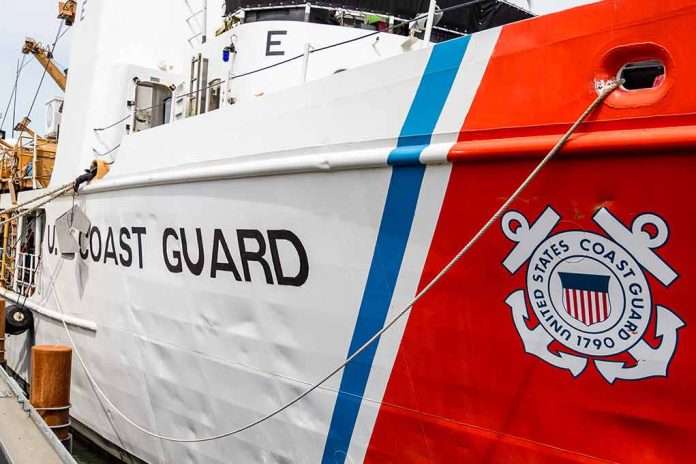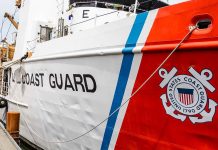
U.S. Coast Guard steps up efforts to intercept illegal maritime migration near Puerto Rico, repatriating dozens of migrants in multiple operations.
At a Glance
- Coast Guard repatriated 46 migrants to the Dominican Republic after interception near Puerto Rico
- Multiple operations intercepted overloaded vessels in the Mona Passage
- 811 non-U.S. citizens interdicted in 24 unlawful migration voyages from October 2023 to January 2024
- Coast Guard warns against dangerous, illegal sea crossings lacking proper safety equipment
- Some migrants face potential criminal charges upon interception
Intensified Coast Guard Operations Near Puerto Rico
The U.S. Coast Guard has significantly increased its efforts to combat illegal maritime migration in the waters surrounding Puerto Rico. In a series of recent operations, Coast Guard cutters have intercepted multiple vessels attempting to reach U.S. soil, primarily departing from the Dominican Republic. These interceptions have resulted in the repatriation of dozens of migrants and the potential prosecution of several individuals.
In one notable operation, the Coast Guard repatriated 46 migrants to the Dominican Republic after they were detained while trying to illegally reach Puerto Rico. The initial detection came from a U.S. Border Patrol aircraft, which spotted a suspicious vessel 34 miles off the coast of Aguadilla. Of the 49 migrants detained in this incident, three were handed over to Customs and Border Protection (CBP) agents for potential criminal charges.
Dangers of Illegal Sea Crossings
Coast Guard officials consistently emphasize the extreme dangers associated with these unlawful migration attempts. The vessels used are often in poor condition, overloaded, and lack basic safety equipment, putting the lives of migrants at severe risk.
In another operation, the Coast Guard Cutter Donald Horsley repatriated 28 migrants to the Dominican Republic after intercepting an overloaded vessel in the Mona Passage. Alarmingly, one of the repatriated individuals had a standing warrant for homicide in the Dominican Republic, highlighting the potential security risks associated with unchecked migration.
“Unlawful irregular migration voyages most often take place aboard grossly overloaded makeshift vessels with no lifesaving equipment” – Cmdr. Gerard Wenk
Scale of Interceptions
The magnitude of these operations is significant. From October 1, 2023, to January 12, 2024, the Coast Guard interdicted 24 unlawful migration voyages in the Mona Passage alone, involving 811 non-U.S. citizens. This high number underscores the persistent challenge faced by U.S. authorities in maintaining border security in the region.
“The collective resolve and steadfast dedication of our Coast Guard and partner agencies is key to stopping these unlawful and dangerous ventures is unwavering” – Cmdr. Matthew Romano, Coast Guard Sector San Juan chief of response
In a more recent series of operations over a single week, Coast Guard cutters intercepted dozens of migrants in three separate incidents off the waters of Puerto Rico. These interceptions involved migrants from both Haiti and the Dominican Republic, illustrating the diverse origins of those attempting these dangerous crossings.
Continued Vigilance and Warnings
The Coast Guard, in collaboration with other federal agencies, remains committed to preventing unlawful and dangerous maritime ventures. Officials continue to stress the importance of seeking legal migration pathways, warning of the life-threatening risks associated with these illegal sea crossings.
“These voyages are extremely unsafe, most often occurring aboard makeshift and unseaworthy vessels that take on water and have no lifesaving equipment onboard. By taking to the sea in one of these voyages you will be putting your life and the lives of others at risk. Instead, seek safe and lawful migration pathways.” – Cmdr. Matthew Romano, Coast Guard Sector San Juan chief of response.
As the Coast Guard continues its vigilant patrols and interception efforts, the message remains clear: illegal maritime migration poses severe risks to all involved and will be met with swift action and repatriation. The ongoing operations underscore the U.S. government’s commitment to border security and the prevention of potentially tragic consequences stemming from these dangerous sea voyages.






















